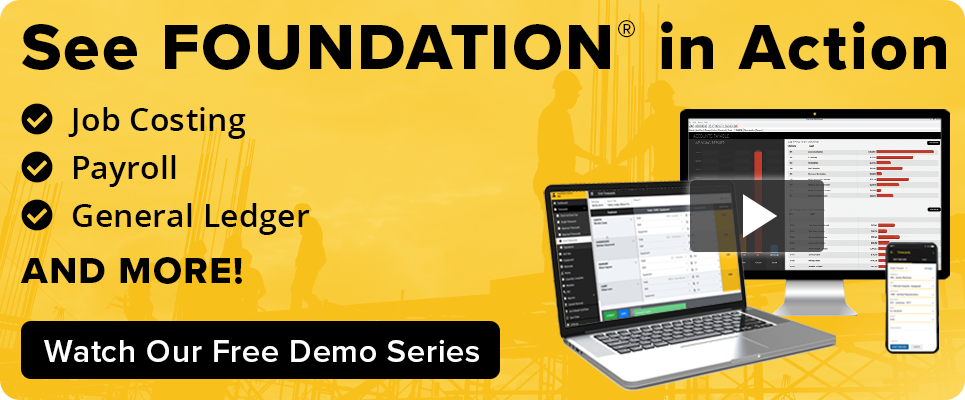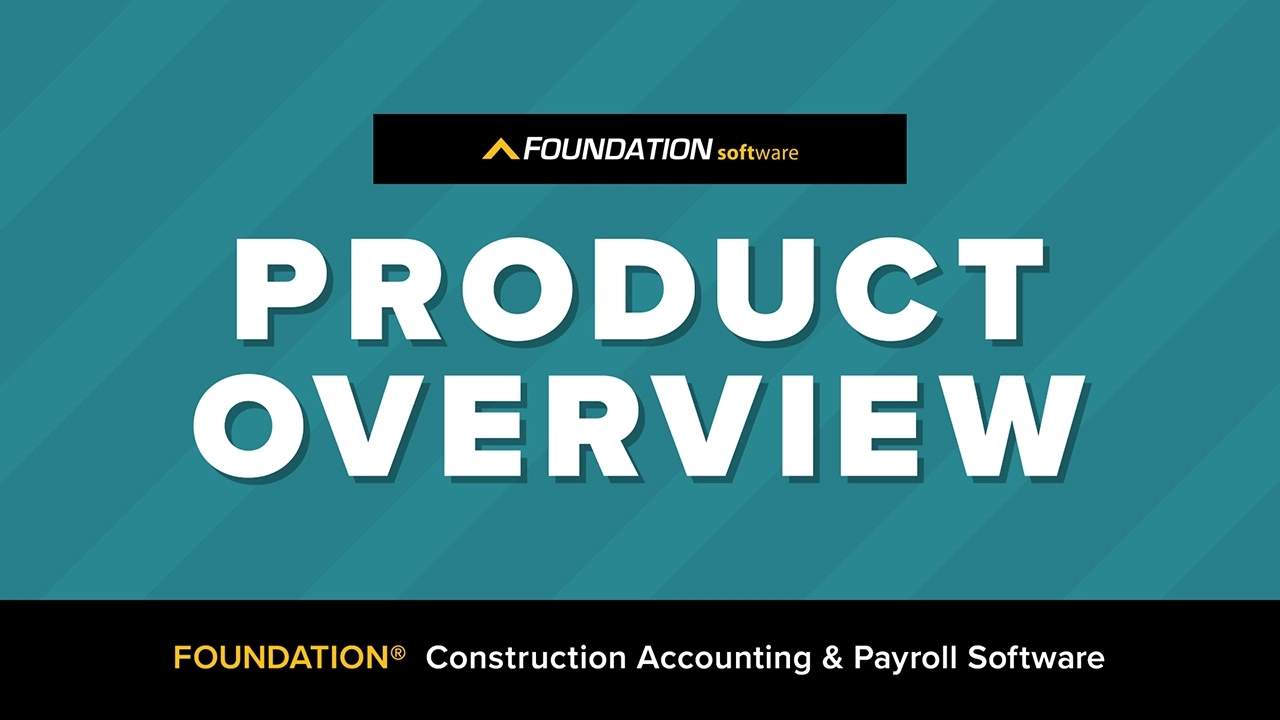

It’s common for contractors to invest in multiple systems for different operations to run their businesses. But when these systems aren’t integrated, getting the right information to the right people at the right time can be difficult and inefficient. Data from FMI and Plan Grid shows that 22% of contractors saw failure in implementing a construction technology because it didn’t integrate well with their existing technology and software. Lack of integration is among the top three reasons tech fails — proving that integrated construction software is becoming a requirement.
Despite this challenge, construction technology systems today have many integration opportunities available that help contractors share data and abate this difficulty. Equipment fleet data, in particular, is critical to have integrated with other business systems.

Equipment fleet information is valuable for ERP and accounting systems as well as project management and operations systems. Similarly, if you already get AEMP data from OEMs, it’s wise to leverage AEMP integrations to see and manage your telematics data on one platform. Exact integration points are unique to each system, but the different types of equipment management system integrations generally work as follows.
With Accounting System / ERP Integrations, information can flow bi-directionally between the equipment management system and the ERP, such as location, engine utilization data (hours/miles), billing information, fuel cost information, parts/labor/repair cost data and more. When utilizing Project Operations Integrations, information can flow bi-directionally between the equipment management and project operations system, such as location, engine utilization data (hours/miles), maintenance information and more. With OEM/ AEMP Integrations, AEMP telematics data that you get from OEM integrations with manufacturers such as Caterpillar, John Deere, Komatsu, Volvo, etc., feeds one way from the OEM to the equipment management system.
There are many reasons why contractors need integrations. Integrations help eliminate inaccurate and incomplete data. A critical problem is that the executive team uses old, incomplete, and/or inaccurate data from the field to determine their plans and projections, which results in inaccurate final project costs. Inaccurate cost data ultimately affect your bid rates and ability to stay competitive.
Integrations also reduce wasted time. When systems are not integrated, contractors spend time maintaining multiple systems and on inefficient administrative tasks like duplicate data entry. Time spent on repetitive data entry takes away from time that should be spent on mission-critical responsibilities and valuable productivity elsewhere.
Contractors can take advantage of a lower risk for error as well. Manual data entry is a time drain and opens opportunities for human error. Keying in “50” vs. “500” or missing a decimal place can throw numbers off significantly. Integrations better serve everyone’s needs overall.
Not all systems can serve the needs of the entire team. Project, equipment, and financial management systems won’t function at 100% on their own in support of all these business focuses, so the best solution for a contractor is to use the best systems for each specialty and make sure those systems connect. A non-integrated platform results in lost productivity, inaccuracies, confusion, lack of technology adoption and overall sunken costs.
Contractors realize various benefits of construction technology integrations. The most fundamental is the automation of data flow to connect systems. With integrated systems, you get accurate data in whichever system you use, as opposed to translating information between two systems or referring to stale information that was never updated manually.
Businesses will also be able to maximize and maintain investments. Integrated systems maximize productivity and extend the use of the systems contractors already invested time and money into deploying. Integrating allows contractors to utilize their systems and team members to their fullest potential.
Another benefit provided by construction technology integrations is the ability to maximize efficiencies and simplify processes. When systems are integrated, you spend less time in each and get to spend more time doing other activities that help drive revenue. Integrated software has a powerful impact on the way contractors operate as an organization and their ability to gain competitive advantages over the competition. In a low-margin industry, finding ways to stay ahead is do or die.
Integrated, construction-focused systems deliver complete and reliable information and is a true operational need that can help contractors build, run and maintain more effective and profitable businesses. Integrations across existing business systems can ultimately take businesses from chaos to calm, provide significant future insights, and keep contractors in the game and winning with new work with larger profit margins. When considering the purchase of a new construction technology system, be sure to research options that integrate with the systems your business is already using.
About Tenna
Tenna is the construction technology platform that revolutionizes equipment fleet operations. We are the standard for the construction industry. Going beyond tracking, Tenna blends cutting-edge technology with more than 100 years of construction experience to help companies know more, control more and make more.
Equipment management systems like Tenna have many integration options to help contractors integrate their equipment management data with the other business systems they rely on. Contact Tenna at discover@tenna.com to learn more.

About Author
As Chief Business Development Officer for Tenna, Russell Young oversees the growth strategy for the organization by working with sales, partners and customers to ensure success. Russ brings two and a half decades of experience from Google, Amazon, Oracle and FMI in best practices for technology strategy, selection and adoption. He applies his knowledge from these organizations to build awareness and provide thought leadership to the construction industry. He emphasizes the importance of technology and picking the right tool for the job.
Russ is a graduate of DePauw, in Indiana, where he earned bachelor’s degrees in Biology and Philosophy.
Share Article
Keep on current news in the construction industry. Subscribe to free eNews!
Learn about our software more in depth with product overviews, demos, and much more!

Our ACA reporting & e-filing services include official 1094-C and 1095-C IRS reporting, optional e-filing (no applying for a TCC code required), mailing to your employees and experienced support to help you.

There are plenty of reasons to make FOUNDATION your choice for job cost accounting and construction management software — just ask our clients!

From job cost accounting software, to construction-specific payroll. Get an overview on your next all-in-one back-office solution.


